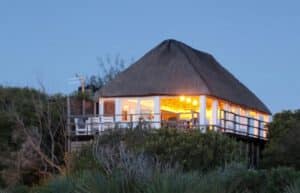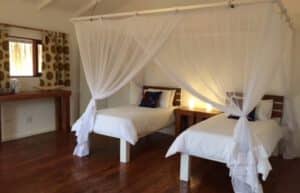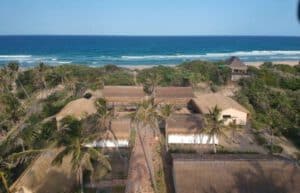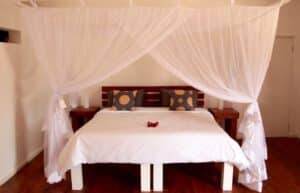GoEco > Africa > Mozambique > Whale Shark and Marine Conservation > Whale Shark and Marine Conservation – Images

Volunteer for the research and conservation of the marine ecosystem and unique marine life found in Mozambique! Volunteers have so far helped to identify over 800 whale sharks and add them to a global database.
Program Highlights:
Program Schedule: (Minimum two-week duration):







What’s Included





What’s not Included

Mozambique is a large country in Southeast Africa bordered by the Indian Ocean, Tanzania to the north, Malawi and Zambia to the northwest, Zimbabwe to the west, and Swaziland and South Africa to the southwest, making it the center of a diverse collection of African countries.
This project is based in the picturesque beach town of Praia do Tofo in the bustling Inhambane Province. It is world renowned for its incredible diving, with a regular viewing of spectacular marine life including whale sharks, dolphins, humpback whales, manta rays and turtles. The soft white sand and crystal clear waters of the coast stretch on for miles and is often compared to paradise.

Over the last 11 years, there has been an 80 percent decrease in the Mozambique whale shark population. With very little public knowledge of endangered species, the locals and politicians of this beautiful country do not prioritize the conservation of this marine species. This program is run by an organization that has existed 14 years and has published 8 scientific papers with recommendations for conservation actions. This organization has also implemented protocols for in-water tourism interactions that help tourists not have a negative impact on the ecosystem.
Volunteers are involved in hands-on data collection and research collected through various scientific methodologies with field data collected on unique species, including whale sharks, humpback whales, dolphins, turtles and other marine biodiversity. The research and data aids in the making of recommendations for the improvement of conservation efforts as well as creating a general awareness about the marine environment.
As a volunteer on this project, you will help carry out the marine research and monitoring activities for the project under the guidance of experienced marine ecologists. You will join other volunteers on the project to collect data via scuba dives, ocean safaris, and beach walks off the coastline of Tofo in Mozambique. You can expect an excellent diving, snorkeling and beach experience, whilst gaining first hand marine research skills, all while contributing to the conservation of stunning marine life. During your time in Praia do Tofo you will be involved in a range of different research projects.
Some of your tasks may include:
Please note: In order to engage in these activities, you will need to be able or willing to learn to scuba dive. An open or advanced internationally recognized diving course is provided as part of your orientation. You need to be a capable swimmer (able to swim 100m unassisted) and snorkeler.










Orientation and Training (Included):
Following your arrival in Praia do Tofo, you will be given a presentation by the co-coordinating project scientists to prepare you for the work you will be doing. You will then be shown around Tofo and have a tour of the nearby city of Inhambane, including time to get a local SIM card and enjoy some freshly prepared local food.
For those who added on the Dive Course: During the first days (weather depending), you will do an open water scuba diving course. This is an internationally accredited course and upon completion you will get a certificate permitting you to scuba dive up to 18m anywhere in the world. Those who already hold an open water course will complete an advanced dive course (qualifies you to dive to 30m). Once the course is completed, you will have the time and skills required to complete the conservation and research work on the project.

© 2022 GOECO | All rights reserved
Develop & Design | Msite